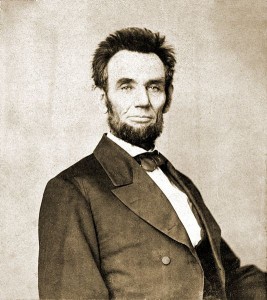
What follows is excerpted from Think and Grow Rich, written by Napolean Hill and published in 1938. Read the book if you haven’t already. It’s essential and inspirational, and should be read by all who partake in business.
11 Major Attributes of Leadership
- Willingness to Assume Full Responsibility. The successful leader must be willing to assume responsibility for the mistakes and the shortcomings of her followers. If she tries to shift the responsibility, she will not remain the leader. If one of her followers makes a mistake, and shows herself incompetent, the leader must consider that it is she who failed.
- Definiteness of Decision. The person who wavers in her decisions shows that she is not sure of herself. She cannot lead others successfully.
Definiteness of Plans. The successful leader must plan her work, and work her plan. A leader who moves by guesswork, without practical, definite plans, is comparable to a ship without a rudder. Sooner or later she will land on the rocks.
- Unwavering Courage based upon knowledge of self, and of one’s occupation. No follower wishes to be led by a leader who lacks self-confidence and courage.
- A Keen Sense of Justice. Without a sense of fairness and justice, no leader can command and retain the respect of her followers.
- Cooperation. The successful leader must understand and apply the principle of cooperative effort and be able to induce her followers to do the same. Leadership calls for POWER, and power calls for COOPERATION.
- Self Control. The person who cannot control herself can never control others. Self-control sets a mighty example for one’s followers.
-
Photo: Eustace Dauger The Habit of Doing More Than Paid For. One of the penalties of leadership is the necessity of willingness upon the part of the leader to do more than she requires of her followers.
- A Pleasing Personality. No slovenly, careless, or unpleasant person can become a successful leader. Leadership calls for respect.
- Sympathy and Understanding. The successful leader must be in sympathy with her followers. Moreover, she must understand them and their problems.
- Mastery of Detail. Successful leadership calls for mastery of details of the leader’s position.
Hill writes the following in an afterword to this list. Remember, this was written 75 years ago: “The relation of employer and employee, or of leader and follower, in the future, will be one of mutual cooperation, based upon an equitable division of the profits of business. In the future, the relationship of employer and employee will be more like a partnership then it has been in the past.”
Wishful thinking, perhaps? Collectively, it would appear that we still have a lot of work to do.
Read More: The Myth of Fearless Leadership
 Definiteness of Plans. The successful leader must plan her work, and work her plan. A leader who moves by guesswork, without practical, definite plans, is comparable to a ship without a rudder. Sooner or later she will land on the rocks.
Definiteness of Plans. The successful leader must plan her work, and work her plan. A leader who moves by guesswork, without practical, definite plans, is comparable to a ship without a rudder. Sooner or later she will land on the rocks.